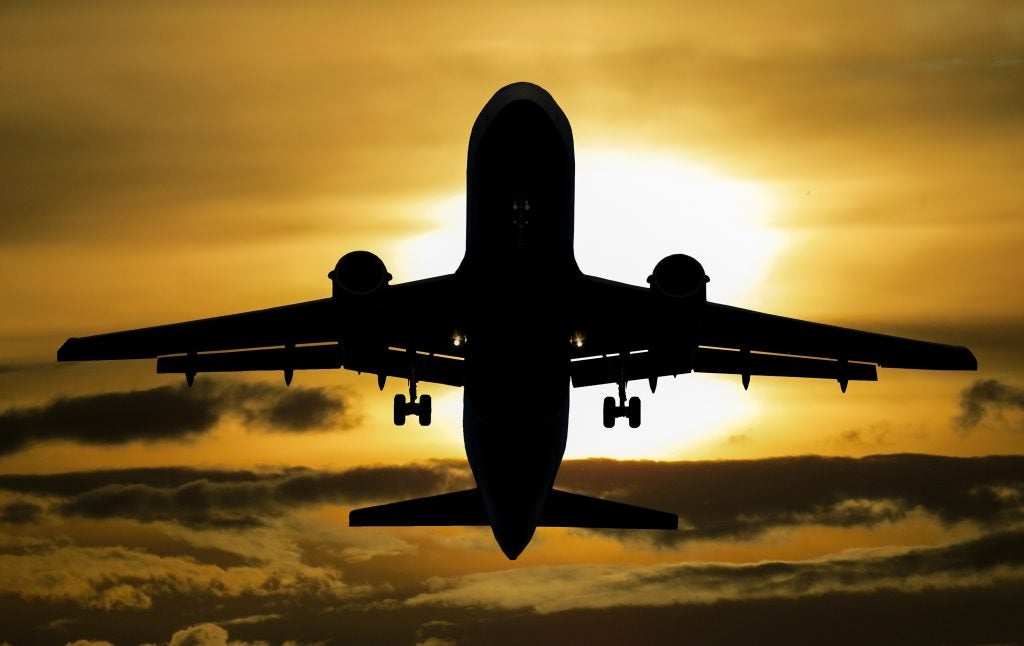
Airplane flying above tropical sea at sunset. Adam Clark, Flickr
If you fly, aviation emissions are likely the largest part of your personal carbon footprint. Absent policy change, aviation’s emissions are slated to triple in the coming decades, making it one of the fastest-growing sources of carbon pollution worldwide.
To achieve the Paris Agreement goals of holding warming to well below 2 degrees Celsius and pursuing efforts to limit warming to 1.5 degrees Celsius, we need to address emissions from all sectors. This includes international aviation and international shipping, which most countries do not include in their Nationally Determined Contributions (NDCs) under the Paris Agreement. Back in 1997 when the Parties to the Climate Treaty couldn’t agree on how to allocate these international emissions, they asked the International Civil Aviation Organization (ICAO), the UN body that sets standards for international flights, and the International Maritime Organization, for ships, to address these emissions. How are their strategies stacking up?
In a forthcoming post, we’ll look at what’s happened lately in IMO. Here’s an update on ICAO. In 2018, ICAO adopted a set of Standards and Recommended Practices (SARPs) to implement the Carbon Offsetting and Reduction Scheme for International Aviation, or CORSIA. As an annex to the Chicago Convention on International Civil Aviation, the SARPs bring into effect an agreement reached in ICAO in 2016 to cap the net carbon dioxide emissions from international flights at 2020 levels through 2035. If implemented with integrity, CORSIA could prevent up to 2.5 billion tons of carbon dioxide emissions. That’s 10 times what U.S. households emit each year. It could do even more if CORSIA’s targets are extended and tightened.
To comply with CORSIA, all international airlines must monitor, report and verify their CO2 emissions. Effective January 1, 2021, airlines flying between participating countries will need to limit the emissions of those flights to the average of their 2019-2020 levels. To meet these emissions limits, airlines can reduce their direct emissions, or purchase and cancel carbon offset credits. Airlines can reduce the amount of offset credits they need by using sustainable, CORSIA-eligible alternative fuels that emit significantly less CO2 than conventional fuels when evaluated on a lifecycle basis.
In March 2019, ICAO took another step forward, agreeing on broad criteria that carbon offset programs will have to meet in order to be eligible to sell emissions units for use in CORSIA. The adoption of these criteria has sparked a sharp uptick in interest in carbon markets. Read More










